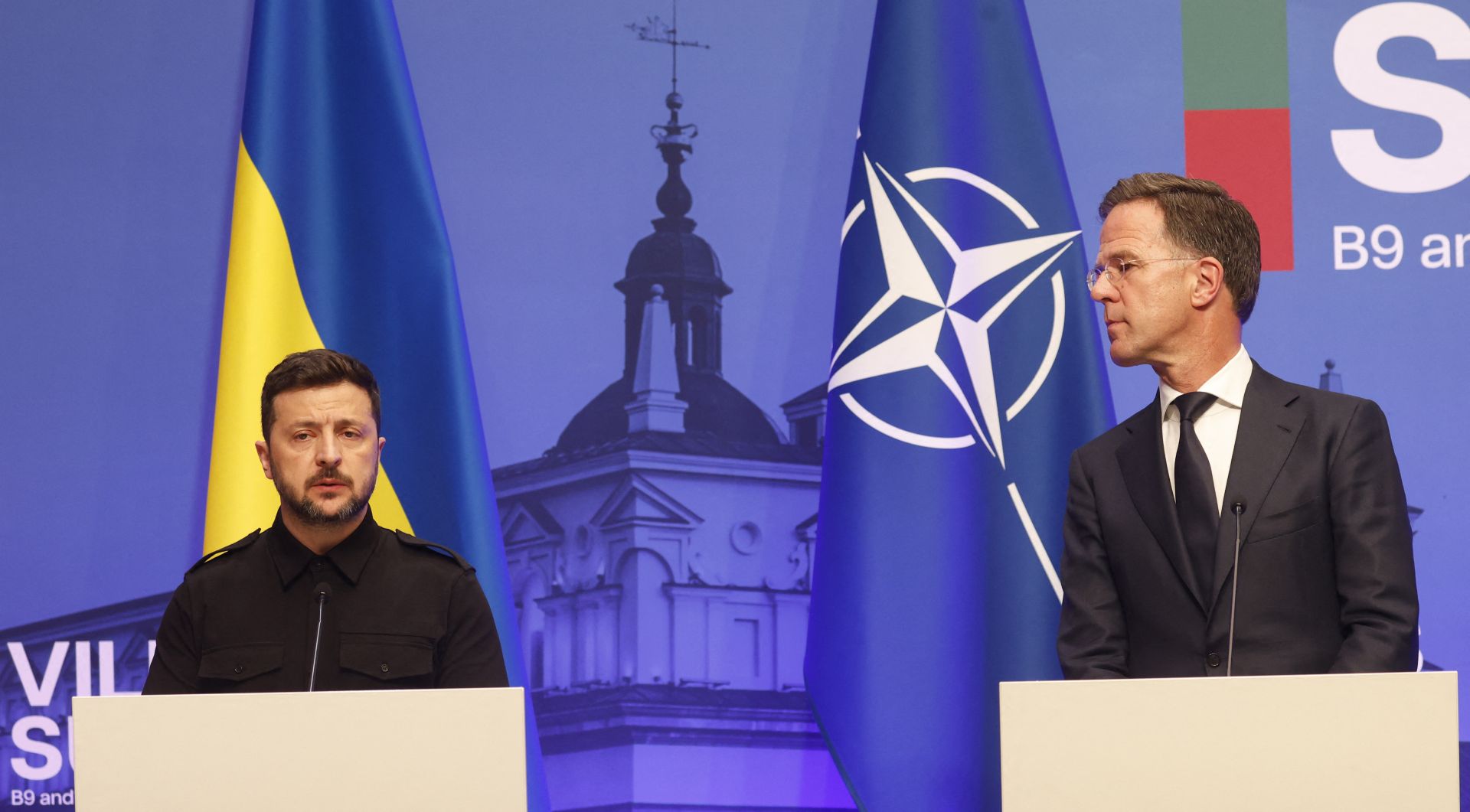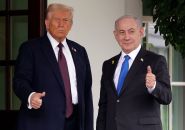- Home
- Middle East
- NATO Wrestles Over How to Handle Ukraine at Trump Summit

Zelensky in the balance: NATO weighs how to include Ukraine at its Hague summit without crossing Trump’s red lines. ©Petras Malukas / AFP
How to have Ukraine's Volodymyr Zelensky at NATO's Hague summit and avoid a bust-up with US President Donald Trump? What to say on Kyiv's desire to join their alliance?
With NATO appearing on track to seal a deal on ramping up defense spending, another thorny issue now threatens to overshadow the gathering in three weeks: what to do about Ukraine?
When they met in Washington a year ago, NATO's leaders feted Zelensky, pledged more military hardware and vowed Kyiv was on an "irreversible path" for membership in their alliance.
That was before Trump's return to the White House ripped up Washington's support for Ukraine and upended the West's approach to Russia's three-year war.
Since he regained the US presidency, Trump had a dramatic Oval Office falling out with Zelensky, opened the door to warmer ties with Moscow and forced both sides to the negotiating table.
Kyiv's European backers have pushed to invite Zelensky to the June 24-25 meeting in the Netherlands to show NATO still stands strongly behind Ukraine.
But the United States has been reluctant even to have Zelensky there and the reality is Trump has already blown a huge hole in Western backing for Kyiv.
The Ukrainian leader said this week he'd received an invite from NATO chief Mark Rutte for Kyiv to be there in some form.
"We can confirm that Ukraine will be with us in The Hague," a NATO official told AFP.
Diplomats, speaking on condition of anonymity, said Zelensky could come for a dinner hosted by the Dutch king for NATO leaders, but that there likely wouldn't be formal talks between Ukraine and the alliance.
"It will be a PR disaster if he's not there," a European diplomat said, speaking as others on condition of anonymity.
Uncertainty over peace talks
How Zelensky may be received in The Hague looks set to depend heavily on the progress, if any, of fraught talks with Russia over the next few weeks.
So far two rounds of meetings between the warring sides in Istanbul have produced few results.
Trump appears to be getting increasingly annoyed with Russian President Vladimir Putin for dragging his feet on a ceasefire.
But the US leader still hasn't responded with sanctions against Moscow and has equally expressed his displeasure with Zelensky's outspokenness.
Rutte has insisted that Ukraine remains a "priority" issue at the summit.
Diplomats, however, say that the overwhelming focus is on striking an agreement on spending that satisfies Trump's demands to spend five percent of GDP on defence -- and keeps the United States on board at NATO.
Multiple officials say the alliance looks set to reach a compromise put forward by Rutte of 3.5 percent of GDP on core defense, and 1.5 percent on broader spending such as infrastructure.
"Defence spending is the most important part and no one wants to jeopardise that," a second diplomat said.
Silence is golden?
One area where there doesn't seem much uncertainty is that NATO will steer clear of its previous strong statements that Ukraine is on course to join the alliance.
Trump has repeatedly poured cold water on Ukraine's ambition to become a member and even blamed Kyiv's bid to join for provoking Russia's war.
NATO is aiming to keep a final declaration from the summit short and avoid mention of Ukraine's possible membership to not open up any fissures.
"There will be nothing on that," said a third diplomat, at NATO. "My expectation is we will be absolutely silent."
There also looks set to be no joint statement on military support from the alliance's 32 countries as Trump has hit the brakes on assistance.
In a sign of how far the US has moved, officials said US defense secretary Pete Hegseth won't attend a meeting of NATO backers in Brussels on Wednesday.
He will however jet in for a meeting of NATO defense ministers on Thursday.
By Max DELANY/AFP
Read more



Comments